Many issues need to be comprehensively evaluated
After more than 6 years of implementation, some provisions of the Press Law 2016 have been assessed by managers, leaders of press agencies and experts to have revealed some limitations and inadequacies, failing to promptly meet the requirements in the press field, leading to difficulties and obstacles in implementation. Especially with the rapid and remarkable development of science , technology and modern communications, there are higher requirements and demands in the press field.
At the national scientific conference "Scientific basis and practice of amending the 2016 Press Law", journalists and experts shared their opinions on the need to perfect legal regulations to adjust and manage promptly and appropriately, creating good conditions for the press to develop in the digital age.
According to Associate Professor, Dr. Bui Chi Trung - Deputy Director of the Institute of Journalism and Communication Training, University of Social Sciences and Humanities, VNU: The 2016 Press Law currently only stipulates four basic types of journalism: print, radio, television, and electronic newspapers, but in reality there are many types of mass media activities that are similar to journalism or related, having a profound impact on journalism activities such as: social networks, electronic information pages, domestic and cross-border applications providing information, videos , radio and television programs...

In the “borderless” Internet environment, there are new trends that pose many problems for press management to ensure a common and fair development ground between the press and other types of media, as well as to adjust to new problems arising from development.
In addition, with the trend of technology convergence, multimedia communication, multi-platform transmission (transmission on telecommunications network infrastructures such as cable, mobile, satellite television (DTH) and especially the proliferation of broadcasting formats on the internet environment through domestic and international websites and applications in Vietnam (OTT); these new platforms have an advantage over traditional formats in allowing interaction with readers, listeners, and viewers at the time of actual broadcast.
Associate Professor, Dr. Bui Chi Trung said that in the "borderless" Internet environment, there are new trends that pose many problems for press management, for example, when press agencies proactively build applications (apps), self-distribute content on the Internet, or open additional channels to distribute press content on domestic and cross-border social networking platforms (open channels on Youtube, TikTok, open fanpages on Facebook, Lotus, Zalo, etc.).
During the operation, there are cases of errors or disputes, violations on cross-border platforms that do not comply with Vietnamese law. In order for the digital transformation of journalism to be implemented more strongly, for information content to spread to the public in a diverse, convenient, everywhere, anytime manner, and especially to have a basis for press agencies to implement business models and diversify revenue sources..., new regulations are needed to ensure a common and fair development ground between journalism and other types of media, as well as to adjust new issues arising from development.
"There are a series of questions arising from practice that require a more appropriate legal framework, for example, is it right or wrong for more and more e-newspapers to develop media pages, videos, radio pages (radio podcasts), or even organize the production of news/specials (exactly like news bulletins, TV specials) to broadcast on the Internet at licensed domain names, is it appropriate or inappropriate? If it is not appropriate or not appropriate, what are the criteria and basis for assessment and evaluation? Do these formats create conflicts and compete directly with the operations of radio and television stations?
Looking at the overall picture of the press and media system, does the "bloom" of these media sites create a waste of social resources, follow "trends" or is it really a new area for the press to develop? These questions need to be understood and answered thoroughly to create development for the press within the framework of regulations and laws of Vietnam" , Associate Professor, Dr. Bui Chi Trung raised the issue.
Mr. Nguyen Kim Chung - General Director of Hanoi Radio and Television Station commented: The amendment of the law requires thinking about forming a more comprehensive law, which can be called "Media Law" whose scope and subjects of regulation cover all press and media activities. Media activities have changed very strongly in reality, so the current scope is no longer suitable.
Amending the law to "resolve difficulties" for the press
In fact, in recent times, state management agencies in Vietnam have encountered many difficulties in managing the service of providing television content (including: feature films, music programs, TV shows...) on demand on the Internet (called OTT VOD) by foreign enterprises with fees such as: Netflix, iFlix, Wetv, Spotify... providing cross-border services into Vietnam. Activities violating Vietnam's regulations on press management have been detected and resolutely punished by state management agencies. Some violations were detected on social networking platforms that share videos such as: Zing TV, Keeng Movies...
Regarding the cause of the current situation, Associate Professor, Dr. Bui Chi Trung said that it originated from the management unit not implementing the license properly, providing OTT VOD services (mainly movies, radio and television programs), not being edited and censored by a licensed press agency before being released.
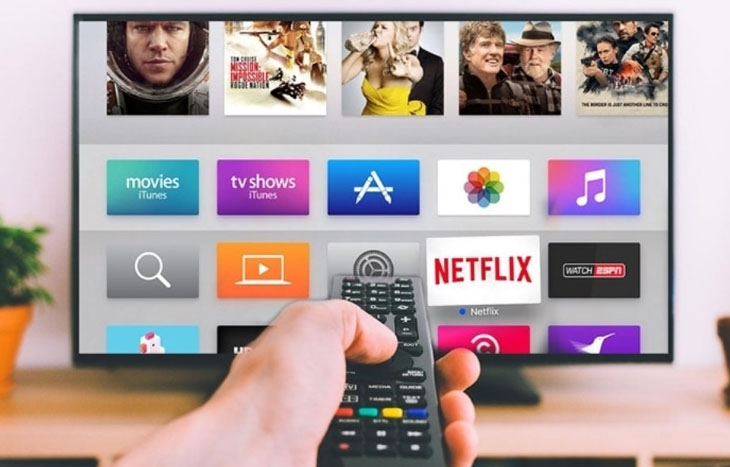
In fact, in recent times, state management agencies in Vietnam have encountered many difficulties in managing the service of providing television content on demand on the Internet (called OTT VOD) of foreign enterprises for a fee.
Meanwhile, some social networks that charge viewers through the form of "upgrading membership" are being exploited by some subjects to only provide VOD to avoid fulfilling their obligations under Decree No. 06/2016/ND-CP of the Vietnamese Government. "Conflicts continue to arise when many capable and reputable public service units (Vietnam Television, Ho Chi Minh City Television) have the need to be provided with pay-TV radio and television services - OTT TV to trade the station's products but are not subject to licensing under the provisions of Article 51 of the 2016 Press Law," said Associate Professor, Dr. Bui Chi Trung.
As a leader directly managing and interacting with daily press activities, Mr. Dinh Dac Vinh - Deputy General Director of VTV shared that, according to the model of a key multimedia media agency, along with playing a leading role in television, the requirement is that VTV must simultaneously produce, distribute, and provide multimedia content on multiple platforms such as the Internet, telecommunications, etc.
However, in order to provide VTV's program channels on the internet for domestic and foreign television viewers, the station has to spend money to rent infrastructure but cannot add additional revenue, cannot increase financial resources to reinvest, innovate technology, improve the quality and duration of program production to carry out the political tasks assigned by the Party, State and Government.
In fact, to implement the construction of a model of a national multimedia media agency from a national television station, VTV has certain advantages. However, for a press agency to transform to a new model, in accordance with the spirit of the Press Planning, it is not just the story of one unit but the companionship and efforts of many ministries, branches and agencies to jointly implement the proposed solutions.
According to Mr. Dinh Dac Vinh, the practical implementation of building the main media agency of VTV further demonstrates the role, importance and significance of one of the solutions also mentioned in the Press Plan to 2025, which is "Amending and perfecting the synchronous laws on press, telecommunications, and information technology to develop in parallel with good management of press types and online information in accordance with the development trend of information and communication in the world and the conditions of our country".
"In the context that the advantages of traditional television are increasingly difficult to compete for influence and revenue with new media on the internet; in order to effectively carry out the tasks and solutions to build a key multimedia media agency, in addition to our own efforts, VTV and perhaps many press agencies really hope that the legal difficulties and problems in the process of performing assigned tasks will soon be resolved and adjusted, creating conditions for press agencies to develop best, complete assigned political tasks and goals," said Mr. Vinh.
Phan Hoa Giang


![[Photo] More than 17,000 candidates participate in the 2025 SPT Competency Assessment Test of Hanoi National University of Education](https://vphoto.vietnam.vn/thumb/1200x675/vietnam/resource/IMAGE/2025/5/17/e538d9a1636c407cbb211b314e6303fd)

![[Photo] Prime Minister Pham Minh Chinh chairs meeting on science and technology development](https://vphoto.vietnam.vn/thumb/1200x675/vietnam/resource/IMAGE/2025/5/17/ae80dd74c384439789b12013c738a045)

![[Photo] Readers line up to visit the photo exhibition and receive a special publication commemorating the 135th birthday of President Ho Chi Minh at Nhan Dan Newspaper](https://vphoto.vietnam.vn/thumb/1200x675/vietnam/resource/IMAGE/2025/5/17/85b3197fc6bd43e6a9ee4db15101005b)





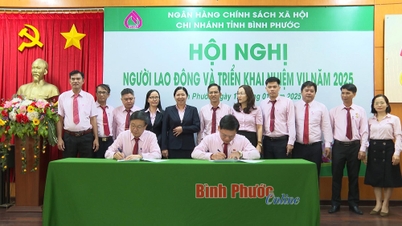



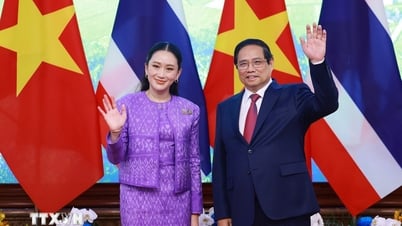

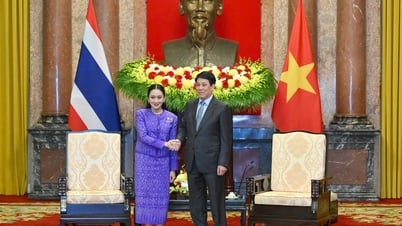

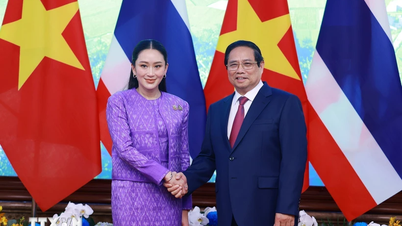
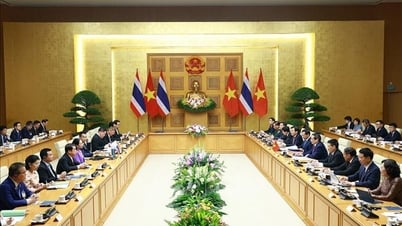

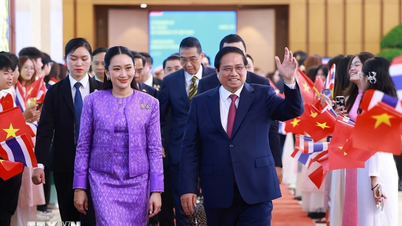

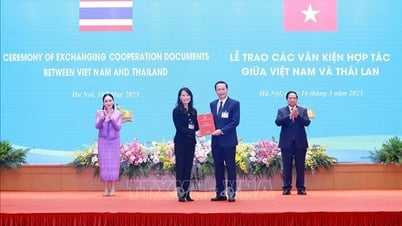










![[Photo] Nearly 3,000 students moved by stories about soldiers](https://vphoto.vietnam.vn/thumb/1200x675/vietnam/resource/IMAGE/2025/5/17/21da57c8241e42438b423eaa37215e0e)


















































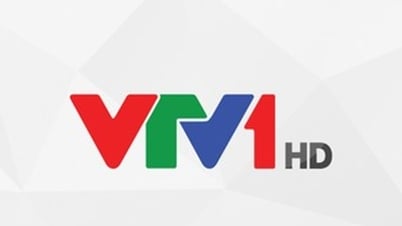

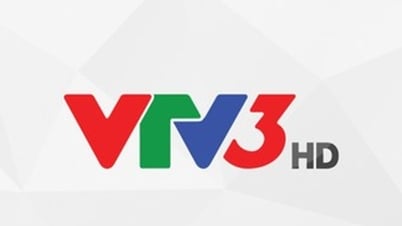
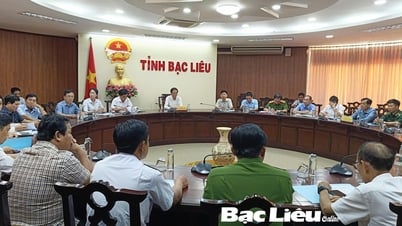


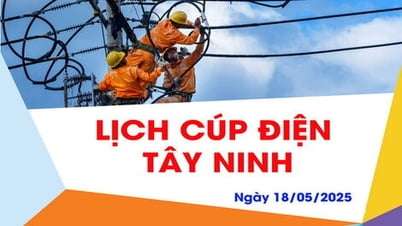














Comment (0)